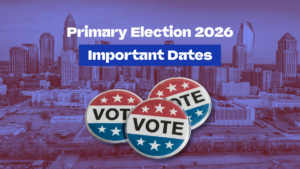Source: Cardinal & Pine
On April 24, the North Carolina General Assembly returned from a six-month break to begin an impactful legislative session.
Last year’s session generated plenty of headlines. North Carolina finally achieved Medicaid expansion, making low cost healthcare accessible to more than 600,000 adults. And following the controversial defection of Rep. Tricia Cotham, conservative legislators passed a 12 week abortion ban, 8 weeks shorter than previous legislation allowed.
With a projected $1.4 billion surplus, the decisions made during this session will likely affect North Carolinians for years to come. Here’s an overview of issues that legislators are planning to take up.
Reproductive Justice
Several high profile policymakers, including Lt. Governor Mark Robinson, have pushed for complete abortion bans. Speaker of the House Tim Moore has said he does not expect to bring up any more votes on abortion this year, but he has also made it clear that if Republicans retain their supermajority after the November election, they would almost certainly introduce a more severe ban on reproductive healthcare.
Education
The legislature recently allocated $294 million to expand private school vouchers. Moore told reporters that the legislature was considering adding another $300 million to the system in the new session. Voucher expansion, several studies show, benefits the wealthy while hurting the 80% of North Carolina children who attend public schools. Critics also point out that many of the private schools that would benefit from more voucher funding openly discriminate against LGBTQ students and kids with disabilities.
Childcare Funding
A recent survey found that 30% of childcare centers in the state said they may have to close without new funding. More than 90,000 young children in North Carolina would lose care. Conservative lawmakers have been noncommittal about whether they would allocate money to the centers, but there are some signs that they are hearing about the problem from their home counties. DHHS staff have appeared twice at a legislative oversight committee to discuss the problem.
Immigration
The NC Senate has already voted on a bill requiring local sheriffs to cooperate with federal immigration agents. The bill passed the House last year but did not get a vote in the Senate.
Marijuana
There remain deep divisions among Republicans over legalizing medical marijuana. The NC senate passed them both last year and the House rejected them.
Read more at Cardinal & Pine.





